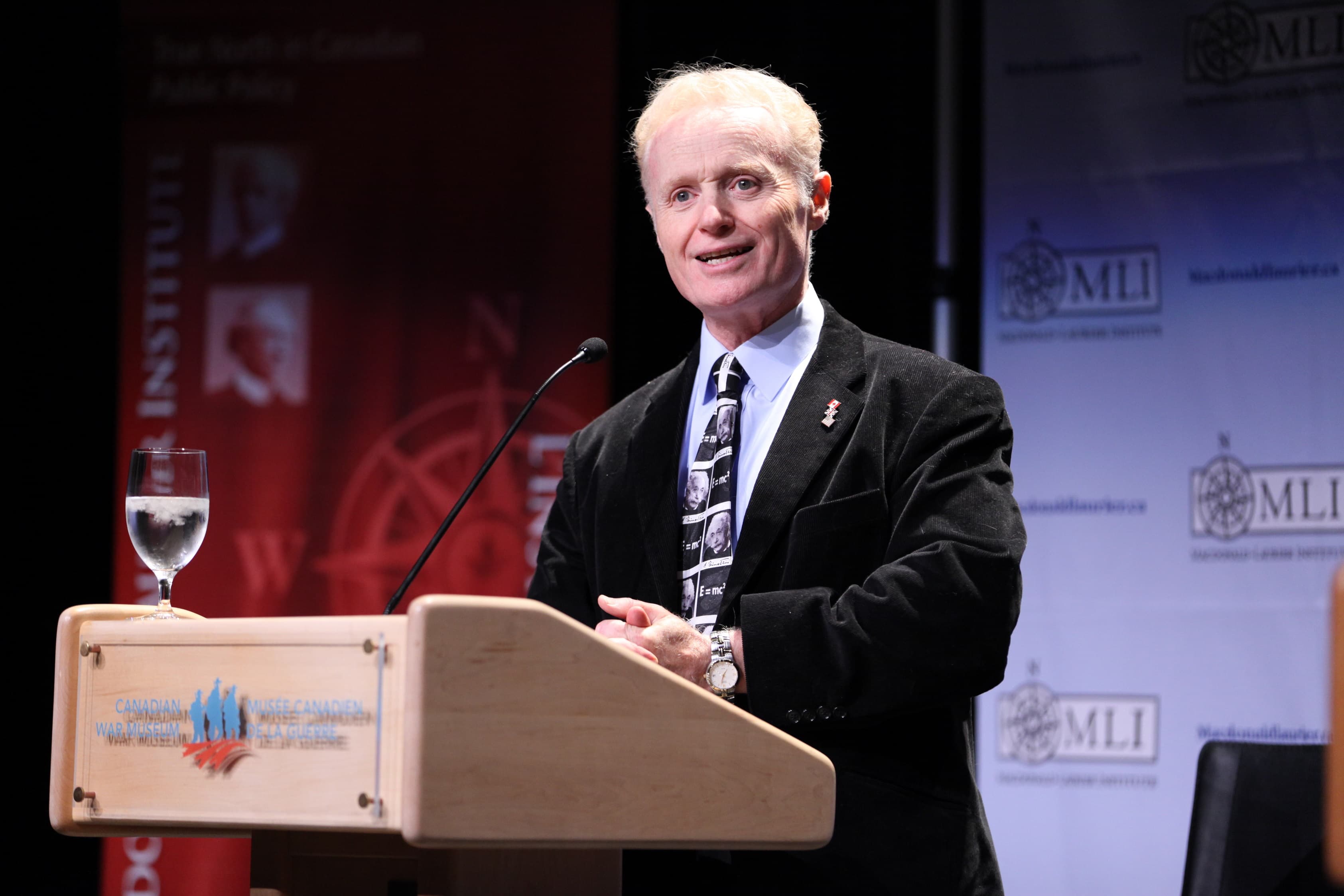Keynote Speeches
Canada is a rare jewel in human experience which is why we are a magnet for people from virtually every other country in the world. Why do they come and why do we welcome them? Because in Canada we are free to put our best efforts into making our best life according to our lights.
We are more likely to live as we want to live, in accordance with our own values, if we are free to make our own decisions based on what we know about ourselves, our loved ones, our communities and our values. We should be celebrating the dynamism and good sense of Canadians’ choices, rather than seeing those choices as something to be “corrected” by our betters.
This topic based on his book of the same name, Crowley notes that creeping progressivism and its irresistible itch to “fix” things by designing something “better” and imposing it from above endangers what has made Canada great. Progressives think the more they can design society and history in accordance with their prejudices, the happier we will be. Gardeners think that happiness resides in the free choices we make for ourselves and the life we make for ourselves through those choices.
-
The “Gardener” Approach: Emphasizing individual freedom and organic societal growth
- Canada’s success as a nation of immigrants
- The power of personal choice in shaping one’s destiny
- The unpredictability and dynamism of a free society
-
The “Progressive” Approach: Advocating for top-down societal design
- The desire to create “fair” outcomes for various groups
- Attempts to reshape cities, economies, and healthcare systems
- The belief in expert-driven decision making
Key points to consider:
- The limitations of government knowledge and the “pretense of knowledge”
- The risk of stifling individual freedom and innovation through over-regulation
- The value of diverse, individual choices in creating a thriving society
- The potential dangers of “creeping progressivism” to Canada’s success
Canada is incredibly blessed with an incomparable natural resource endowment. That natural wealth, though, does not explain our success, for many other countries have natural resources but live in poverty and dysfunction. Canada’s great success lies in the marriage of resources and well-functioning institutions. Brian explains why there is no conflict between manufacturing and resources, why natural resources are a powerful explanation of Canada’s success, but also why that success is challenged by the undermining of the certainty our institutions used to confer: well understood and accepted approval process, the rule of law, clear ownership of resources. Canada can continue to enjoy prosperity, but only if it takes orderly and thoughtful steps to re-establish the success of our courts, our politics and our bureaucracy.
As one of the leading health care thinkers in the country, Brian walks his audience through the key drivers of health care reform, and concludes that a reformed Canadian health care system will be vastly different from the status quo, as well as from what is going on in the United States.
Few issues trouble Canadians as much as relations with Aboriginal peoples, and few issues seem so intractable. As a result of Brian’s work with Aboriginal leaders, industry and governments, however, he is an optimist that a new deal with Aboriginal peoples is not only possible, its outlines can already be glimpsed in the new deals over resource development being struck across the country.
Brian lays out a compelling case why the supposed conflict between economic growth and environmental protection is a false one. Instead, by understanding the contribution that growth makes to environmental sustainability, Canadians will be able to see that they can lead the world in balancing the needs of a natural resource economy and every Canadian’s wish to live in an environmentally responsible way.













Similar Speakers 123